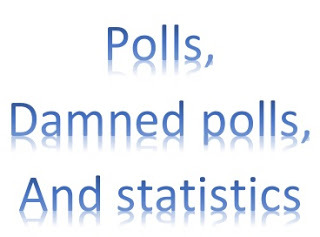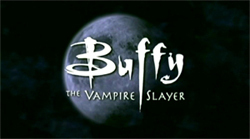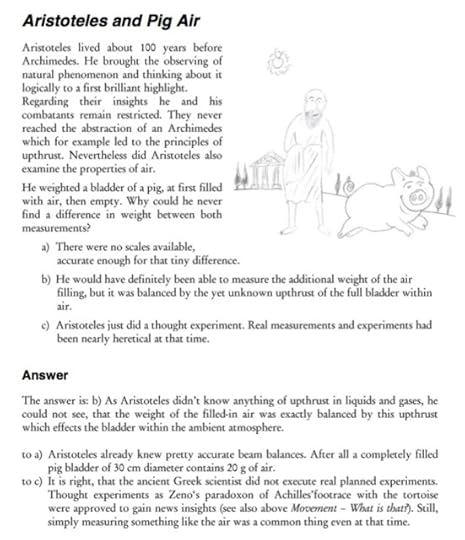Brian Clegg's Blog, page 62
December 7, 2015
Gendered science
Anyone who has had young daughters will know that the chances of them going through a pink-loving phase are pretty strong. It may be purely a matter of peer pressure, but those horrible Barbie pinks are likely to become part of your life. We'll come back to this preference, but the reason I bring this up is a result of thinking about gender preference for scientific subjects.
I think I am right in saying without checking (I'm sure someone will correct me if I'm wrong) that biological sciences have more female than male undergraduates and postgrads, where the reverse is true of physics. There's a lot of debate as to why this happens. Neither subject, of course, is exclusive. I know plenty of male biologists and female physicists. But there is a bias. This was echoed by the general public according to a recent YouGov survey, which asked the oddly worded question:
Here are the results:
By Gender%TOTALMaleFemaleBiology271538Chemistry675Physics203110Earth science212220None of them161517Don't know101010
And, what a surprise, there's an impressive gender switch between biology and physics. It would have been interesting to have seen maths as well, to see if the same preferences obtained. But why? Is it something about the science itself? Could it be how the subjects are taught at schools? Could biology give more context, for instance, where physics provides little idea of history or reason for taking particular approaches? Or is it as much a result of unreasoned peer pressure as the love of Barbie pink? I suspect that these are the main potential contributory factors to shaping these statistics. A lack of role models is sometimes given as a potential reason, but this seems a dubious argument, as there are plenty of male role models in biology, but we still see an opposing bias there, because the media try hard to give female role models in sciences in general these days, and role models seem more likely to influence those studying the subject than a general opinion survey like the one above, yet the bias was clearly there too.
I don't know what the answer is. I certainly don't claim to have one. But it's interesting.
One other small observation - it's sad to see that when the data is split by age (as you can if you follow the link above), interest fell away with as respondents got older. Come on oldies: science is for you too!
I think I am right in saying without checking (I'm sure someone will correct me if I'm wrong) that biological sciences have more female than male undergraduates and postgrads, where the reverse is true of physics. There's a lot of debate as to why this happens. Neither subject, of course, is exclusive. I know plenty of male biologists and female physicists. But there is a bias. This was echoed by the general public according to a recent YouGov survey, which asked the oddly worded question:
One hundred years ago, on November 25th 1915, Albert Einstein presented his general theory of relativity to the Prussian Academy of Sciences. Which of the four main branches of natural science do you personally find most interesting?I say 'oddly worded' because that first sentence smacks of the psychological tactic of priming. It may have just been intended as context for asking the question, but it's always dangerous to provide information before asking a question as it can lead to the answer being biassed by the wording.
Here are the results:
By Gender%TOTALMaleFemaleBiology271538Chemistry675Physics203110Earth science212220None of them161517Don't know101010
And, what a surprise, there's an impressive gender switch between biology and physics. It would have been interesting to have seen maths as well, to see if the same preferences obtained. But why? Is it something about the science itself? Could it be how the subjects are taught at schools? Could biology give more context, for instance, where physics provides little idea of history or reason for taking particular approaches? Or is it as much a result of unreasoned peer pressure as the love of Barbie pink? I suspect that these are the main potential contributory factors to shaping these statistics. A lack of role models is sometimes given as a potential reason, but this seems a dubious argument, as there are plenty of male role models in biology, but we still see an opposing bias there, because the media try hard to give female role models in sciences in general these days, and role models seem more likely to influence those studying the subject than a general opinion survey like the one above, yet the bias was clearly there too.
I don't know what the answer is. I certainly don't claim to have one. But it's interesting.
One other small observation - it's sad to see that when the data is split by age (as you can if you follow the link above), interest fell away with as respondents got older. Come on oldies: science is for you too!
Published on December 07, 2015 04:00
December 5, 2015
Gladiator-at-Law - review
I have a horrible feeling there will be plenty of younger science fiction readers for whom the names of Frederik Pohl and Cyril M. Kornbluth mean nothing, but for those of us of a certain age they are among the greats.
I've just re-read this classic title, Gladiator-at-Law. It's over sixty years old (I see on Amazon.com you can buy the June 1954 Galaxy Magazine part of it first appeared in), and yet apart from a few niggling details, it is as fresh as ever. This bread and circuses dystopia, with an early focus on the dangers of corporations and lawyers having too much power is superbly crafted. It's a page turner, but thoughtful as well.
Those niggles? There are inevitably technology flaws - in this case, most notably the use of microfilm to store data. And, as is common for writing of the period, the female characters mostly fit within limited stereotypes (although some of the younger female characters are pretty violent). While you can argue also with aspects of the embedded morality tale, the fact is that this book does everything you want from good science fiction, at a tremendous pace and with lots of content.
I don't want to give too much away, but I can almost guarantee it will exceed expectations - and where some themes may now seem quite familiar, chances are they were novel at the time, because this was pretty much groundbreaking stuff.
Recommended. Available secondhand from Amazon.co.uk and Amazon.com, though ridiculously it doesn't seem to be in print.
I've just re-read this classic title, Gladiator-at-Law. It's over sixty years old (I see on Amazon.com you can buy the June 1954 Galaxy Magazine part of it first appeared in), and yet apart from a few niggling details, it is as fresh as ever. This bread and circuses dystopia, with an early focus on the dangers of corporations and lawyers having too much power is superbly crafted. It's a page turner, but thoughtful as well.
Those niggles? There are inevitably technology flaws - in this case, most notably the use of microfilm to store data. And, as is common for writing of the period, the female characters mostly fit within limited stereotypes (although some of the younger female characters are pretty violent). While you can argue also with aspects of the embedded morality tale, the fact is that this book does everything you want from good science fiction, at a tremendous pace and with lots of content.
I don't want to give too much away, but I can almost guarantee it will exceed expectations - and where some themes may now seem quite familiar, chances are they were novel at the time, because this was pretty much groundbreaking stuff.
Recommended. Available secondhand from Amazon.co.uk and Amazon.com, though ridiculously it doesn't seem to be in print.
Published on December 05, 2015 09:07
December 3, 2015
Are the majority of voters in the UK in favour of EU exit?
 If you've read a fair number of my blog posts, you'll be aware that I am always a little suspicious of statistics used in the news, and I think it's worth regularly digging a little deeper to see what lies beneath those numbers, and whether they really tell us what the media say they do.
If you've read a fair number of my blog posts, you'll be aware that I am always a little suspicious of statistics used in the news, and I think it's worth regularly digging a little deeper to see what lies beneath those numbers, and whether they really tell us what the media say they do.A little over a week ago, there was a fair amount of coverage to say that for the first time, possibly influenced by the Paris attacks a few days before, there was a majority of voters in the UK in favour of leaving the EU. But was that really true?
After a bit of digging (none of the newspaper reports I looked at had a link to the data) I found the results from the ORB International survey. (It's on page 8, as this is a summary of a range of surveys.) The survey was of 2067 people and, indeed, 52% were in favour of leaving over 48% against. But there are two issues here. Can we be sure that such a tight margin is representative when we blow that 2067 up to the 45 million or so voting population, and what about the 'don't know's?
The survey doesn't provide error values (though some of the other surveys in the report do), but if they did, I would be very surprised if they didn't allow for a couple of percentage points in inaccuracy - so there could still be a majority the other way. The survey does tell that around half of the population would be likely to say that they would vote against, but it isn't accurate enough to tell us that we have crossed a line from 'most for staying in' to 'most for leaving'.
However, the more interesting aspect is the 'don't know's. The survey didn't give the option of 'don't know' or 'undecided.' I guess the argument was that this won't be an option on the ballot paper in 2017 (or whenever the real decision is made). But the trouble is, probably over a year out from the vote, when we haven't yet heard the full arguments from both sides, there will be a lot of floating voters. Previous surveys suggest that numbers are in the 15-25% range. So, in effect, there could be 500 or more of those votes cast in this poll that weren't correct. That's a huge error, and it really says that we just haven't got a clue.
Is the survey useless? No, though I wish they would include 'undecided'. We do get a feel from the series of polls that there has been a drift towards a 'get out of the EU' decision. But what certainly is the case is that this poll does not show, as the headlines claimed, that the majority of voters are now in favour of leaving the EU.
Published on December 03, 2015 00:58
December 2, 2015
If I had a pound...
 A recent piece in the Economist proudly proclaims
The Real Future of Electronic Literature
. I read this and groaned. I have read so many times how the electronic platform will allow a transformation of literature - yet there is a very good reason that most of these forms drop by the wayside. They are novelties that aren't as good as just reading a boring old book, whether in paper format or as an ebook.
A recent piece in the Economist proudly proclaims
The Real Future of Electronic Literature
. I read this and groaned. I have read so many times how the electronic platform will allow a transformation of literature - yet there is a very good reason that most of these forms drop by the wayside. They are novelties that aren't as good as just reading a boring old book, whether in paper format or as an ebook.As the Economist piece points out, modern story-led video games are the closest we have to a true electronic book that truly makes use of what the medium can offer. And, of course, they have been a huge success. But they are very different beasts in terms of the investment required to produce them than is a novel. In fact, they are probably closer related to that other alternative medium form, the movie. And just like movies, games will always be relatively small in number and no challenge to the written word because the market is so different.
The Economist article is partially driven by the book Arcadia, which I reviewed here. As I pointed out then, I really couldn't see the point of the interactive version (you can see more details of the interactive app and download it here), which essentially divides the book into bitesized chunks where the reader can decide on the sequence they are read. As I pointed out then, 'As a reader, I don't want to do the author's job for him. I want to be led - that's the whole point of reading a book. If I wanted to write my own book I would, and often have.' It's just unnecessary work for the reader with no discernible benefit. And it doesn't really add to the experience.
We've seen all sorts of enhancements to the book suggested. There were CD-ROM interactive books, most successfully probably the Encarta encyclopaedia. Now long gone. There have been ebooks with soundtracks, like the Byook. Never quite made it. And there have been interactive books for tablets, like Solar System for iPad . I very much liked this app when I reviewed it, but even then it felt like a novelty. It was fun to play with, but I couldn't possibly have read it 'cover to cover.' And interestingly this kind of app seems to have gone into terminal decline. Pushed hard on the release of the iPad, these interactive books did well for the first couple of titles. but since then they have not sold particularly well and, because they are costly to make, have never had a wide range of titles.
Realistically, if we want ebooks that are more than just an electronic copy of a paper book, with interactivity and all those good things, we need a format that is easy, quick and cheap to add to the basic words and pictures. Arguably the closest we have come to that is a blogging platform like Blogger, where Now Appearing is hosted. It might not be sophisticated, but there is a form of interactivity in the links you'll find above, and it's something I can do as a writer without employing an expensive designer for months. But anyone expecting the Economist-style revolution is, I think, living in interactive book cloud cuckoo land.
It ain't going to happen.
Published on December 02, 2015 01:43
November 30, 2015
What are small publishers thinking?
 I gather from the excellent i newspaper that this has not been a good year for [book] publishers, with 128 going out of business compared with 81 the previous year. I assume these are mostly smaller outfits.
I gather from the excellent i newspaper that this has not been a good year for [book] publishers, with 128 going out of business compared with 81 the previous year. I assume these are mostly smaller outfits.The article blames the rise in use of ebooks, with failing publishers struggling to make books available in this format. This is both sad and baffling. I have been published by both large and middle-sized publishers and in my experience the smaller companies are much lighter on their feet and able to quickly adapt to new opportunities like ebooks.
Admittedly, the chances are many of the failed companies were one person and a dog publishers, rather than mid-sized operations, but I'm amazed that these days, when ebook publishing is so much easier than it was even 5 years ago that the failed companies weren't on top of the state of today's publishing. I do wonder if it could be that too many of them were rather prissy about ebooks as somehow inferior to the printed page, refused to get into bed with Amazon - which you have to when it is the dominant ebook player - or didn't understand how to use the flexibility of pricing that ebooks bring.
Whatever the reasons, it's a shame - and a lesson for anyone thinking of getting into publishing: this isn't a game for those who are resistant to change.
Published on November 30, 2015 01:37
November 25, 2015
The Homecraft Book - review
 This is the time of year when many of us are looking for good presents for those difficult-to-buy-for people. I have done my bit for this cause with the science quiz book
How Many Moons Does the Earth Have
(traditional shameless plug), but even I, through gritted teeth, have to admit that not everyone would greet a science book in their stocking with a cheery smile. And if that's the case, you are recommended to get hold of The Homecraft Book by Ann Hathaway.
This is the time of year when many of us are looking for good presents for those difficult-to-buy-for people. I have done my bit for this cause with the science quiz book
How Many Moons Does the Earth Have
(traditional shameless plug), but even I, through gritted teeth, have to admit that not everyone would greet a science book in their stocking with a cheery smile. And if that's the case, you are recommended to get hold of The Homecraft Book by Ann Hathaway.In case there's a suspicion that the Hollywood actress is following her colleague Ms Paltrow into telling us how to run our lives, this was the pseudonym of an Irish writer of home tips. Written at the end of the Second World War, the book has been edited by the author's grandson, who has the even more unlikely pseudonym of Thaddeus Lovecraft.
The reader knows that there is a fun trip ahead when seeing the 'mostly non-lethal advice' comment on the cover, reinforced by being informed that we won't need to have a maid (or a Hoover). Some sections are marvellous read aloud, preferably in a Joyce Grenfell voice, e.g. 'use two dusters at the same time - one in each hand when dusting your rooms. You'll find you can do your work much more quickly'. (And don't forget to 'paint your cork tablemat with enamel, cheerful and easy to keep clean.')
Realistically, this isn't the kind of book you are likely to sit and read from end to end as it does contain a lot of lists for advice, for instance on mending everything from the household bucket (using putty) to getting rid of cracks in china (the secret is an application of the anything but harmless quicklime). But it is a great title to dip into and to get a feel for a very different world from our disposable society. Back then, make do and mend was essential - an approach that arguably we can learn a lot from.
Appealing both to older readers for nostalgia reasons and younger trendy folk for its ironic appeal, I expect the book to do very nicely this Christmas. And you will be pleased to know that there is even a section on making the most of your Christmas festivities. Available from Amazon.co.uk and Amazon.com.
Published on November 25, 2015 01:28
November 24, 2015
Damned if you do...
I am, as I not infrequently do, feeling rather sorry for the Church of England. This most inoffensive of religious organisations is being lambasted by certain parts of the media and by atheist bloggers for an attempt to place an advert in cinemas alongside the showing of Star Wars this Christmas.
Now I confess that my knee-jerk reaction was much the same as those who want the ad not to be shown. It didn't seem quite right as not everyone in the audience would appreciate it. To quote a spokesperson for the company responsible for the advertising, Digital Cinema Media: 'Some advertising - unintentionally or otherwise - could cause offence to those of differing political persuasions, as well as to those of differing faith and indeed no faith at all.'
However. When I actually think about this action rationally, I am less happy with the decision. First of all, I am never comfortable with any curtailment of free speech, unless said speech is inciting a crime. Too many people find it far too easy to restrain free speech because it offends them. I'm sorry, but there is, and there never should be, a human right not to be offended.
The other point that seems to have been missed is that this was not a documentary, it was an advertisement. Many kinds of advertisements offend me. I am offended by shops bombarding us with Christmas advertising in November. I am offended by advertising for sugary drinks and food. I am offended by advertising for films and games that feature gratuitous violence. But no one considers my offence a reason to ban the advertising.
Of course I am not arguing that anyone should care about the (genuine) offence I feel about this advertising, but rather wanting to call into question whether avoiding offence is a suitable justification for pulling a Christian ad at Christmas. The Church of England is reportedly baffled at the decision. I'm not, because I am aware of the increasingly strident calls never to say or do anything that could possibly cause offence to a small but very vocal constituency. But I am saddened.
In case you want to find out what the fuss is about, here's the offending advertisement in all its offensive glory (and let's face it, in the still you see before the video plays, Justin Welby does not look happy):
Now I confess that my knee-jerk reaction was much the same as those who want the ad not to be shown. It didn't seem quite right as not everyone in the audience would appreciate it. To quote a spokesperson for the company responsible for the advertising, Digital Cinema Media: 'Some advertising - unintentionally or otherwise - could cause offence to those of differing political persuasions, as well as to those of differing faith and indeed no faith at all.'
However. When I actually think about this action rationally, I am less happy with the decision. First of all, I am never comfortable with any curtailment of free speech, unless said speech is inciting a crime. Too many people find it far too easy to restrain free speech because it offends them. I'm sorry, but there is, and there never should be, a human right not to be offended.
The other point that seems to have been missed is that this was not a documentary, it was an advertisement. Many kinds of advertisements offend me. I am offended by shops bombarding us with Christmas advertising in November. I am offended by advertising for sugary drinks and food. I am offended by advertising for films and games that feature gratuitous violence. But no one considers my offence a reason to ban the advertising.
Of course I am not arguing that anyone should care about the (genuine) offence I feel about this advertising, but rather wanting to call into question whether avoiding offence is a suitable justification for pulling a Christian ad at Christmas. The Church of England is reportedly baffled at the decision. I'm not, because I am aware of the increasingly strident calls never to say or do anything that could possibly cause offence to a small but very vocal constituency. But I am saddened.
In case you want to find out what the fuss is about, here's the offending advertisement in all its offensive glory (and let's face it, in the still you see before the video plays, Justin Welby does not look happy):
Published on November 24, 2015 01:37
November 23, 2015
Five writing lessons from a master
 No, I haven't got delusions of grandeur - the master in question isn't me. However, I do quite often get asked for writing hints and tips, and I think there can be no better example to point an enquirer to for fiction guidance than Joss Whedon.
No, I haven't got delusions of grandeur - the master in question isn't me. However, I do quite often get asked for writing hints and tips, and I think there can be no better example to point an enquirer to for fiction guidance than Joss Whedon.If you were expecting Steinbeck or Proust or Shakespeare, you might not know who Whedon is. His first big success was as a writer on Toy Story, and he's now involved in the Avengers series of films, but his personal masterpieces, to my mind, were a set of TV shows, including Firefly, Angel, Dollhouse and, most notably, Buffy the Vampire Slayer.
I can almost feel those with literary inclinations fainting with shock. How can real writers who pour their soul into books learn anything from a screenwriter? And you may well also be writhing at the mere title of the show, but anyone familiar with Buffy will tell you that this programme was far more than the name suggests. I am sad for a new generation coming up who may never watch the show because they think it will be too dated. And yet the mere fact that many writers love Buffy (and they do) suggests that more lies beneath than the title suggest, and that reflects Whedon's guiding hand.
So here are my five six Buffy-driven tips to make fiction more appealing:
Invert expectations and clichés - this is the very essence of Buffy. Whedon's concept was to take the cliché of a monster chasing and killing young women and invert it to have a young woman chasing and killing monsters. It is so effective and can be applied in all kinds of ways. A lack of such inversion is the limitation of many comic book stories that have reached the screen - they rarely get away from expectation, especially in their villains. It is also why I've been pleased by the two Netflix Marvel adaptations, Daredevil and Jessica Jones, which show signs of a Whedoneseque attitude to expectation.Avoid the obvious hero - Buffy's central cast of main characters, sometimes self-referenced as the Scoobies (pop culture references are another Whedon speciality) are mostly the outsiders, looked down on by the other characters. The troublemakers, geeks, socially inept and even that most difficult of heroes for Americans to accept, an Englishman. We all know the English characters in US dramas will be bad guys, and occasionally this is even the case in Buffy, but surprisingly often they aren't.Embrace ambiguity - things are rarely what they seem in Buffy. When a rather fluffy-brained person becomes a vampire, she remains a rather fluffy-brained person, despite also being evil. Buffy was one of the first examples of recognising the true ambiguity of being a superhero, which Buffy effectively is. She can't live a normal life. She doesn't do well in school and when her friends go to university, she doesn't cope and ends up with a dead-end job in a burger joint. Even one of the truly unpleasant characters, Spike, becomes both a source of humour (I refer Buffy fans to the moment it Tabula Rasa where he has lost his memory, tries to work out who he is, and realises that he is English) and an unlikely ally for the good guys.Humour works in the most unlikely places - talking about humour, most Buffy newbies thinks a Buffy fan can't be serious when they say that one of the main reasons they like the show is its humour. Surely, the newcomer thinks, a show like this is all schlock and horror. Where does the humour come in? Yet Whedon uses humour all the time, particularly in the dialogue. And it works wonderfully.When it's working well, do something different - the greatest episodes of Buffy work because they are unexpected. For me, three of the best are an episode which has almost no dialogue whatsoever - a shock in a show so dialogue-driven as Buffy, an episode that becomes a musical (I know this has been done in other US shows, but never as well as here), and the episode after Buffy's mother's death - where this horror show has no incidental music (stunningly effective), and no horror elements other than the characters' reactions, except in the last couple of minutes.Play the long game - I know the title said five lessons, but I couldn't resist throwing in a bonus one. Although most Buffy episodes work standalone, the show has always had impressive story arcs that run through a whole season. Where these are particularly effective is when an element that belongs to the arc is thrown in without explanation and then ignored for the viewer to store away, perhaps for several episodes. Two examples I'd give are a season where military characters suddenly appear and take down a monster without any explanation, and the occasion where we suddenly discover Buffy's teenage sister, living at home and clearly having been part of everyone's lives for many years, even though up to this point she has never appeared or been mentioned.If you've never come across Buffy, I hope I've whet your appetite to take a look (the first season is the weakest, but you need to start at the beginning, and it picks up hugely in season 2). If you know your Buffy, I hope you will think back to the impressive writing guide that it provides.
Published on November 23, 2015 01:46
November 19, 2015
Pump up your physics (in German)
 I've heard about a new project from Germany, aiming to make physics more approachable. With a background in natural sciences and industry, Ottmar Koegel works to support foundation issues in teaching science in Germany: Pumping Physics is his baby.
I've heard about a new project from Germany, aiming to make physics more approachable. With a background in natural sciences and industry, Ottmar Koegel works to support foundation issues in teaching science in Germany: Pumping Physics is his baby.His idea was to pick up on the kind of exercise-based learning that is found in musical instrument training, making the educational side more fun with a mix of illustrations and real-world scenarios, providing straightforward multiple choice questions to test and learn.
At the moment there is no English version, but for English readers, here's a taster (the translation is not a polished one).

More importantly, for any German readers, you can find out more about the book and see some of the actual examples at the Pumping Physics website.
I don't think this kind of approach is ideal for a popular science audience - I admit, the English example above was one of the less technical, but some of the questions do expect the reader to do some calculation and formulae work, so it feels more like a friendly textbook than popular science. But that doesn't mean it's not an interesting project, currently for the German speaking audience.
The book will be available in December.
Published on November 19, 2015 02:00
November 18, 2015
Why French flags are fine
 Many people have changed their Facebook image to incorporate a French flag, in solidarity with the French nation over the atrocities in Paris last week. I certainly don't think we should be critical of people who haven't - I haven't, for one. There are a number of reasons for not doing so, but one objection that I think is suspect is the kind made in this article by Nathalie Bonney on the Good Housekeeping website.
Many people have changed their Facebook image to incorporate a French flag, in solidarity with the French nation over the atrocities in Paris last week. I certainly don't think we should be critical of people who haven't - I haven't, for one. There are a number of reasons for not doing so, but one objection that I think is suspect is the kind made in this article by Nathalie Bonney on the Good Housekeeping website.The broad argument is that to show solidarity with the French this way is parochial. There have been thousands of people killed by terrorists this year, and yet no one is putting up flags of other locations. (Actually, not no one - one of my Facebook friends has made his own Lebanese flag cover for his Facebook photo.)
I have two problems with this complaint. One is that it seems petty to discourage someone from doing something positive for one group because they aren't doing something positive for another. It's a bit like saying 'I would never give any money to Cancer Research because I'm not giving anything to the British Heart Foundation.'
The response from supporters of the objection, I guess, would be that the argument is more nuanced than that. They don't have an issue with showing solidarity with France, but it's not fair that it took an atrocity in France to generate this kind of response from Facebook, and there wasn't an option for previous atrocities.
I would suggest this reflects the false 'small world' impression given by the modern media and many commentators. Because we can see disasters happening anywhere, we think that it is possible to have exactly the same attitude to an event wherever it happens - but that is totally unnatural and if we are honest and not self-deceiving, it is impossible to truly do. The fact is, I will always feel closer to, and more affected by, a disaster in my family than one to someone else who lives down the same street. And I will be more affected by a disaster to someone else in my street than to someone who lives in London. And I will be more effected by a disaster in Paris, a place that I have regularly visited and that has strong cultural ties with the UK than I would by a disaster in the Middle East.
We can't feel the same about everyone and everywhere. This doesn't mean we ignore things outside our own neighbourhood, but it is entirely natural, and should not be a matter for criticism, that we put more weight on events that are closer to home, physically or culturally. To try to feel exactly the same about everybody and everywhere is both inhuman and impractical, leading to a cold, thin porridge of a response. or universal outrage with no focus.
So, while, as it happens, I have not added the French flag myself, I think entirely fine that other people have, and consider the criticisms misjudged and unnecessary.
Published on November 18, 2015 02:38



